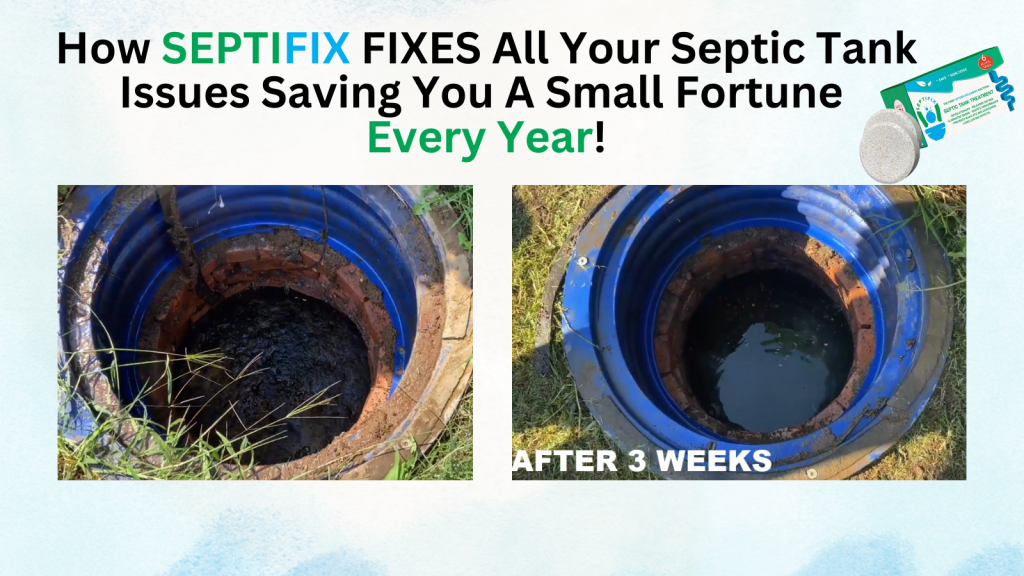Installing or maintaining an illegal septic system in Indiana can lead to serious consequences, including fines and legal action. The state enforces strict wastewater disposal regulations to protect public health and the environment. Homeowners and property owners must comply with penalty for illegal septic system Indiana laws to avoid penalties. Understanding these regulations helps you prevent costly mistakes and ensures your system operates legally and efficiently. Whether you call it an on-site wastewater system, private sewage disposal, or a septic tank, Indiana law requires adherence to specific rules.
Table of Content
- Indiana Septic System Regulations
- Penalties for Illegal Septic Systems in Indiana
- Common Violations Leading to Penalties
- How to Avoid Septic System Penalties
- Contact Information and Resources
- Septifix
- Septic Permit Links by State
- Septic Permit Forms By State
Indiana Septic System Regulations
Septic system laws in Indiana ensure proper wastewater treatment and prevent contamination of groundwater and surface water. The Indiana Department of Health (IDOH) oversees statewide regulations, while local county health departments enforce specific requirements. Before installing a septic system, homeowners must obtain a septic permit and follow local health codes.
Key Indiana Septic System Rules
- All new septic systems require approval and inspection.
- Homeowners must obtain a permit before installation.
- Systems must meet setback requirements from wells, property lines, and water sources.
- Routine maintenance and inspections are required for proper operation.
Preparing Your Site for Installation of a Septic Tank
Penalties for Illegal Septic Systems in Indiana
Failure to comply with Indiana’s septic system regulations can result in severe penalties. Property owners who install, modify, or operate an unapproved system risk legal and financial consequences. The penalty for illegal septic system Indiana violations can be costly, making it essential to follow state and local guidelines to avoid fines and legal issues.
Common Penalties for Septic Violations
- Fines – Violators can face fines ranging from $500 to $5,000 per violation. Repeated offenses can lead to higher penalties.
- Cease and Desist Orders – Authorities can issue stop-work orders, preventing further construction or use of an illegal system.
- Mandatory System Removal or Repairs – Property owners may be required to remove non-compliant systems or pay for expensive upgrades.
- Legal Action – In severe cases, violations can lead to lawsuits or criminal charges.
- Increased Property Costs – An illegal system can devalue a property and make it difficult to sell.
Common Violations Leading to Penalties
Many homeowners unknowingly violate septic system regulations. Below are some common infractions that result in penalties.
1. Installing a System Without a Permit
All septic systems require permits from local health departments. Homeowners who install systems without approval face fines and may be forced to remove the system.
2. Using an Unapproved Septic System
Only state-approved designs can be used for wastewater treatment. Alternative systems, such as cesspools, are often illegal unless specifically permitted.
3. Failing to Maintain the System
Neglecting regular maintenance, such as septic tank pumping and inspections, can lead to system failure, contamination, and penalties.
4. Violating Setback Requirements
Septic tanks and drain fields must be installed at safe distances from wells, property lines, and water bodies. Improper placement can result in fines and required relocation.
How to Avoid Septic System Penalties
Avoiding penalties requires understanding and following Indiana’s septic regulations. Here are steps to ensure compliance:
- Obtain a Permit – Always secure the proper permits before installing or modifying a system.
- Use a Licensed Installer – Hiring a certified septic contractor ensures compliance with state and local codes.
- Follow Maintenance Guidelines – Regularly pump and inspect your septic tank to avoid failures and legal issues.
- Check Local Regulations – Different counties have specific rules, so always check with your local health department.
- Upgrade Non-Compliant Systems – If your system is outdated or illegal, upgrade it to avoid fines and environmental hazards.
Contact Information and Resources
If you have questions about septic system regulations or need guidance on legal compliance, contact these Indiana agencies:
- Indiana Department of Health (IDOH) – Visit Website
- Indiana Department of Environmental Management (IDEM) – Visit Website
- Local County Health Departments – Contact your county office for specific septic permit requirements.
Conclusion
Avoiding fines and legal trouble starts with understanding the penalty for illegal septic system Indiana laws. Installing an unapproved system, skipping permits, or failing to maintain your system can lead to costly penalties. Follow the rules, consult professionals, and stay informed to protect your property and the environment. If you need help navigating Indiana’s septic regulations, reach out to local health authorities for guidance.
Septifix

Directory | Washington Septic Service Providers | Part 1
DIY Repairs Are Always Cheaper
Septic Regulations in Rural Areas: Essential Guide for Rural Property Owners
The Role of Perforated Pipes in Drain Fields
What Happens During a Pumping Service?
Septic Tanks vs. Sewer Systems | Choosing the Right Option
Directory | Virginia Septic Service Providers | Part 2
Directory | Virginia Septic Service Providers : Best Professionals | Part 1
Septic Permit Links by State









